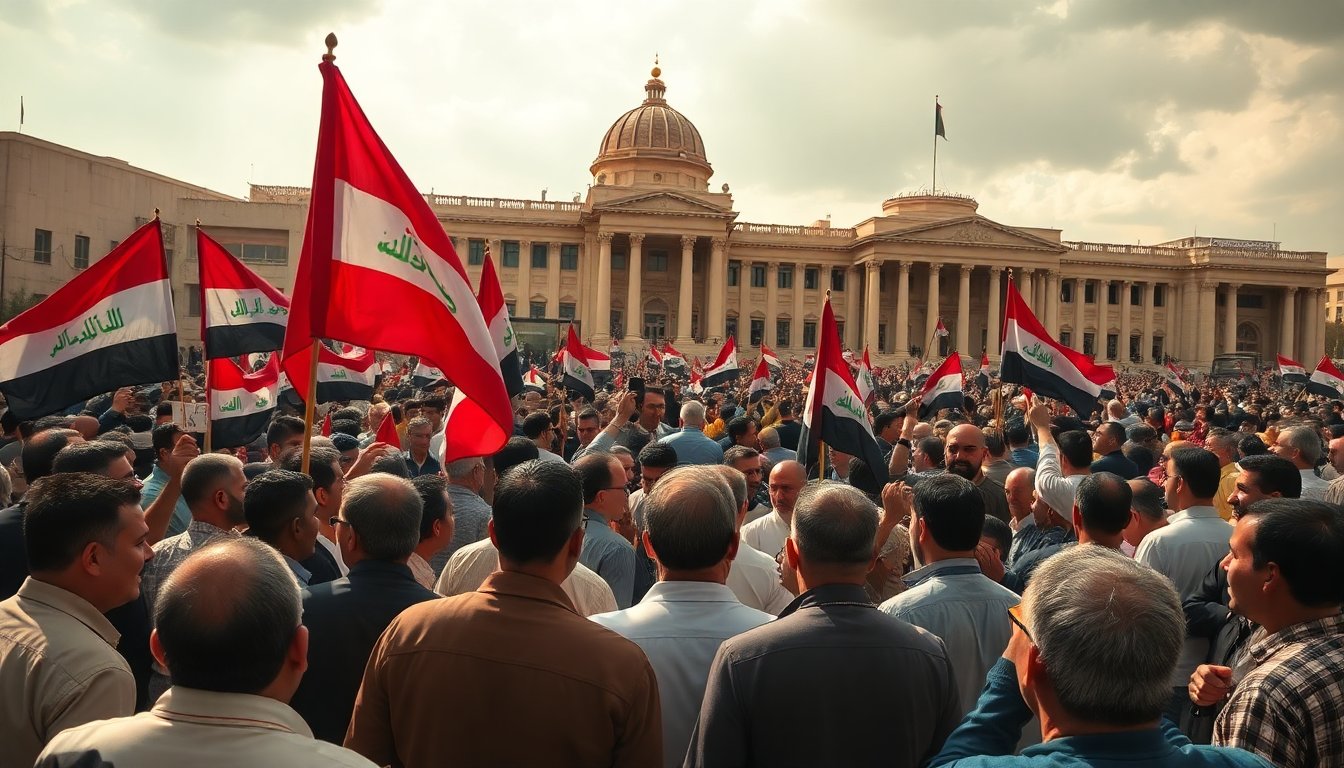Table of Contents
“`html
The recent elections in Iraq, held on November 11, signify a pivotal moment in the country’s political landscape. As the results emerge, Prime Minister Mohamed Shia al Sudani has taken the lead, yet the involvement of Iran-backed militias complicates future governance. This situation indicates that Iraq is likely facing a prolonged negotiation period as various factions pursue power.
This election marks the sixth since the fall of Saddam Hussein. Al Sudani’s coalition, known as the Coalition for Reconstruction and Development, is projected to secure around fifty seats in the 329-member parliament, establishing it as the leading political entity. However, the political environment remains complex due to the influence of other militant groups.
Understanding the election dynamics
The political landscape in Iraq features a complex interplay of factions. The electoral process attracted over 7,700 candidates, with women comprising nearly one-third of the contenders. Voter turnout increased significantly to over 55%, up from 41% in the previous election. However, notable boycotts occurred, particularly from influential figures like Muqtada al Sadr, who criticized the elections as being sectarian-driven.
The implications of election results
The implications of these elections extend beyond the numbers. The incoming government will need to tackle urgent societal issues, including employment, infrastructure, education, and healthcare. Iraq faces significant challenges related to corruption and mismanagement, complicating the administration’s tasks. Furthermore, the new government must navigate the interests of its two primary allies, Iran and the United States, amid ongoing regional tensions.
Regional and international considerations
The elections are under close scrutiny from both domestic and international stakeholders. Iran aims to preserve its influence in Iraq as its regional allies confront difficulties. Recent conflicts affecting groups such as Hezbollah and Hamas have prompted Iran to strengthen its political foothold in Iraq. Meanwhile, the United States, which maintains approximately 2,500 troops in the country, is urging the government to disarm Iranian-aligned militias, presenting further challenges for the incoming administration.
The delicate balance of power
The intricacies of Iraq’s political fabric are significant. As the election results unfold, the selection of a new president—typically a Kurdish position—and a new parliamentary speaker, usually held by a Sunni, adds complexity to the negotiations. The outcomes of these roles will be crucial for future governance and stability in Iraq.
Overall, the path forward for Iraq is laden with challenges. The strong performance of Iran-backed militias may lead to intense power struggles, prolonging the negotiation process. As various factions engage in dialogue, Iraq’s future hinges on their ability to form alliances that not only address the diverse needs of its population but also navigate external influences from competing nations.
“`


